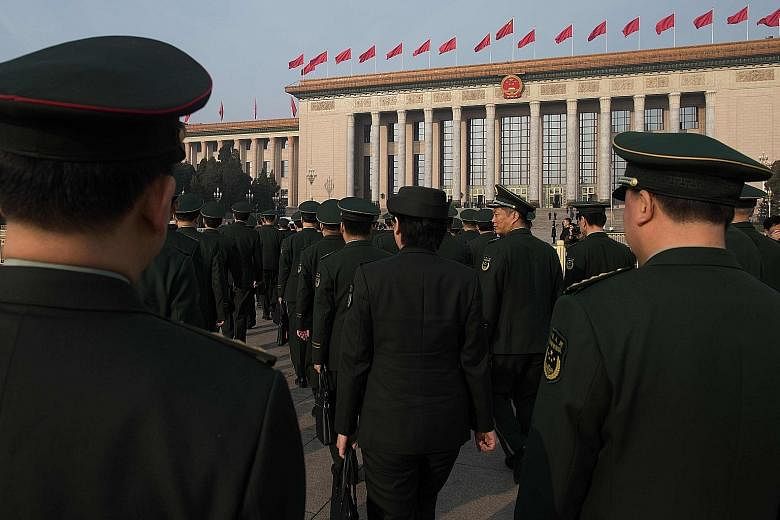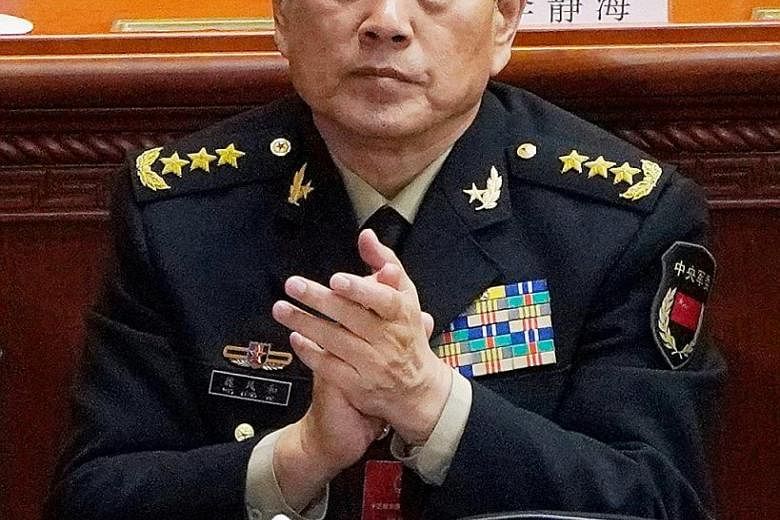China has named its former strategic missile force chief as defence minister, completing a shake-up of its top military brass that began last October.
General Wei Fenghe's appointment yesterday underscored the firm grip that President Xi Jinping now has over the People's Liberation Army (PLA), said analysts.
Gen Wei, 63, was the first officer to be promoted to full general when Mr Xi took office as Chinese Communist Party (CCP) chief in 2012, and also the youngest to hold the rank at the time.
A career artillery officer, he rose through the ranks of the then Second Artillery Corps, which oversees China's land-based nuclear arsenal, and became its commander in 2012.
That year, Gen Wei was among the first in the PLA's senior leadership to both pledge allegiance to Mr Xi and actively execute his military reform agenda, which included a sweeping reorganisation of the PLA and its command structure.
Under his watch, the Second Artillery Corps was renamed the Second Artillery Force and split into the Strategic Support Force and the PLA Rocket Force, with Gen Wei becoming the commander of the latter.
"Wei actually provided Xi with the plan to reorganise the Second Artillery Corps in an innovative way, even though it wasn't in his personal interests," a source told the South China Morning Post.
"That sacrifice did not go unnoticed by Xi, and it convinced other senior officials in the strategic missile force to make similar concessions."
At the CCP national congress last October, Gen Wei was among six generals and an admiral named to a smaller Central Military Commission (CMC), the top body overseeing the PLA and headed by Mr Xi.
"The downsizing of the CMC (from 11 members) and its appointment of Xi's favoured generals endorsed Xi's status as China's new strongman," said China expert James Char at the S. Rajaratnam School of International Studies.
Mr Char noted that Gen Xu Qiliang and Gen Zhang Youxia, who were confirmed as CMC vice-chairmen on Sunday, shared a long history with Mr Xi. The remaining four CMC members had either served in the former Nanjing Military Region that covers Mr Xi's former Fujian and Zhejiang strongholds, or been groomed for higher office.
Gen Wei's appointment as defence minister yesterday puts him at No. 4 on the military hierarchy, after Mr Xi and and the two vice-chairs, and ahead of the other three CMC members.


